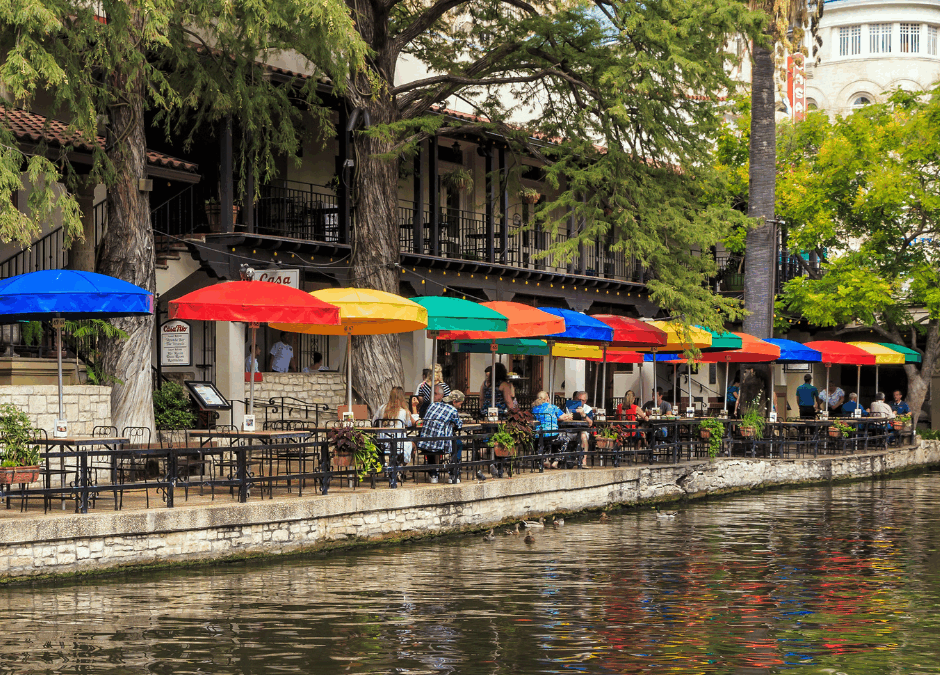By Ritzy Gonzales, Small Business Program Associate, The Center by Lendistry
San Antonio, affectionately known as the Alamo City, is a vibrant cultural hub where art, food, and heritage breathe life into every corner. When I first moved to South Texas, I was eager to explore my new surroundings—and it didn’t take long to fall in love with the city. From the colorful Fiesta flags greeting visitors at the airport to the murals honoring local legends, culture is everywhere. But what really stayed with me were the small businesses—panaderías, bookstores, coffee shops—each one reflecting a different part of the city’s identity.
One of my first memorable outings was to Mi Tierra, where the scent of breakfast tacos and fresh pan dulce filled the air. Later, while walking along the River Walk, I began to understand how deeply connected San Antonio’s culture is to its neighborhoods and its small businesses. It reminded me that culture isn’t something preserved in museums—it’s alive in storefronts, shared in conversation, and passed down through generations of entrepreneurs.
I’ve had the privilege of seeing this up close in my work at The Center, where we support small business owners in communities that have historically been excluded from opportunity. As a first-generation American and the daughter of non-English-speaking parents, I know what it means to navigate unfamiliar systems, and I recognize the grit it takes to grow a business against the odds. It’s one of the reasons I’m proud to help entrepreneurs get access to the resources they need to succeed.
While San Antonio has many beloved small businesses, not all of them have the support they need to stay open. A few years ago, I stumbled upon a little shop near the Alamodome called Vice Versa. It was a cozy spot with vinyl records, books, and a sense of community you could feel the minute you walked in. But just a month after I discovered it, the doors closed for good. I spoke to the owner, Vinny Guerrero, who told me he had no city support when a major equipment failure hit. No investors, no safety net—just passion, and unfortunately, that wasn’t enough.
Stories like Vinny’s are not uncommon. Many business owners operate with little margin for error. They’re creative, resilient, and hardworking, but still face barriers when it comes to accessing capital, navigating permitting processes, or getting digital marketing support.
That’s where The Center comes in. Through programs like our Digital Growth Accelerator, we help small businesses across California build their online presence and reach new customers. Offered in both English and Spanish, and with beginner and intermediate cohorts, the program is designed to meet businesses where they are—whether they’re just getting started or looking to level up.
In Atlanta, we partnered with the Atlanta Beltline Business Solutions Office to launch Beltline Business Ventures, supporting local entrepreneurs with tailored technical assistance and strategic coaching. And our newest program, the Main Street Goes Green Accelerator, supports small businesses, contractors, and local governments in become energy-efficient—because sustainability is not only good for the planet, it’s good for business.
What I love about this work is that it recognizes what many of us already know: small businesses are more than economic engines—they are cultural anchors. Each business tells a story. Of heritage. Of migration. Of community. Whether it’s a family-run bakery, a neighborhood salon, or a coffee shop with open mic nights, these places give our cities their soul.
Supporting small businesses means investing in the people and places that make our communities feel like home. That’s what I get to do every day at The Center—and I’m grateful for it.
June 2, 2025

